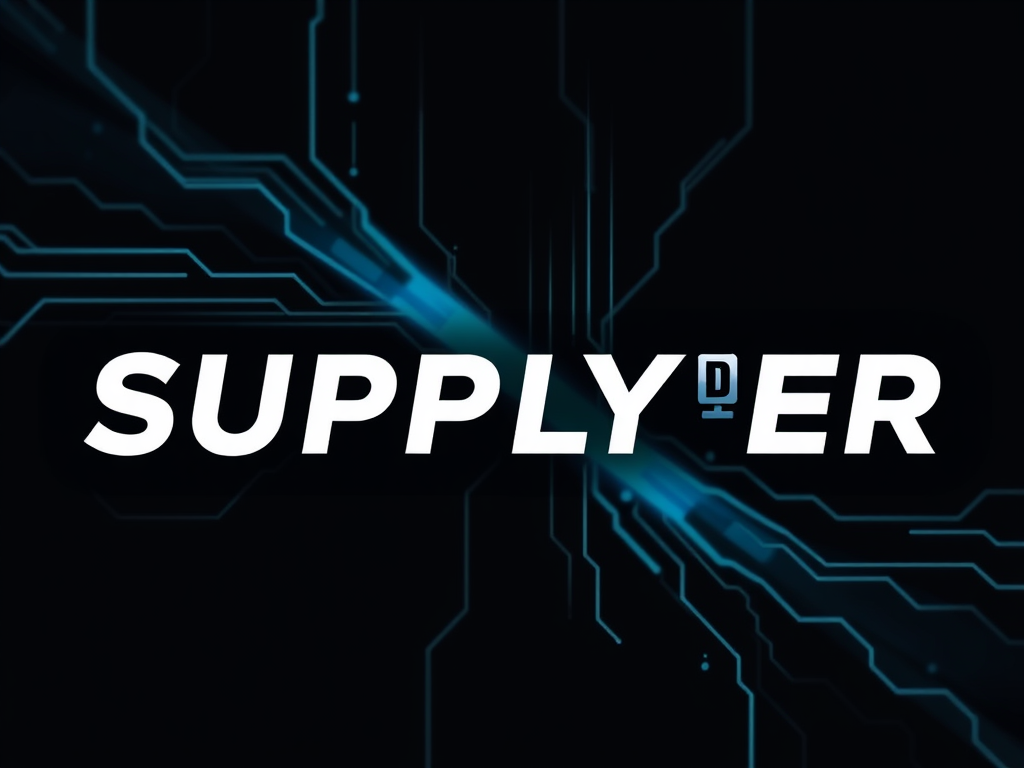Leveraging AI and Automation in UK Marketing Strategies
Artificial Intelligence and automation are transforming marketing in the UK by enabling smarter, faster campaign execution. AI in marketing allows businesses to analyse customer data comprehensively, delivering personalised content and optimising customer journeys. UK companies increasingly adopt automation tools to handle repetitive tasks, freeing teams to focus on creative strategy and engagement.
UK automation trends show a marked rise in adopting AI-driven technologies like chatbots, predictive analytics, and programmatic advertising. For example, retailers use AI-powered recommendation engines to customise product suggestions, boosting conversion rates significantly. Financial services integrate AI chatbots for 24/7 customer support, improving satisfaction while reducing operational costs.
Also to discover : Maximizing marketing efficiency: uk companies’ guide to harnessing cloud computing
The real power lies in measurable impacts. Businesses observe enhanced campaign effectiveness by tracking key metrics such as engagement rates and sales conversions in real time. AI algorithms continuously refine targeting, increasing ROI with less manual intervention. Adoption of AI in marketing mandatorily aligns with evolving UK compliance standards, ensuring data privacy remains paramount.
In summary, the integration of AI and automation offers UK marketers a competitive edge by streamlining processes, enhancing customer insights, and delivering quantifiable business results. Embracing these technologies positions organisations strategically for future growth.
Also to read : Harness the power of ai avatars for effortless video creation
Leveraging AI and Automation in UK Marketing Strategies
AI in marketing is increasingly pivotal for UK businesses seeking precision and efficiency. A key advantage of AI-driven tools lies in real-time data processing, enabling campaigns to adapt dynamically to consumer behaviour. For instance, programmatic advertising utilises machine learning models to optimise ad placements automatically, targeting users with high conversion potential while reducing wasted impressions. This reduces costs and boosts campaign ROI.
Regarding UK automation trends, chatbots provide exemplary customer service around the clock. They handle routine inquiries swiftly, freeing staff to focus on complex issues. One UK financial firm reported a 30% decrease in support ticket backlog after chatbot integration. Additionally, predictive analytics in retail forecasts purchasing patterns, allowing brands to personalise offers before demand peaks.
Business technology adoption is often measured by the tangible uplift in campaign metrics. Companies leveraging AI and automation report increased engagement rates and higher leads quality. Crucially, these outcomes stem from systems continuously learning and refining targeting parameters. This iterative improvement underlines the value of investing in AI-powered marketing solutions within the UK’s digital ecosystem.
Leveraging AI and Automation in UK Marketing Strategies
Artificial Intelligence (AI) and automation are pivotal in UK marketing strategies, profoundly shaping how campaigns are designed and executed. By integrating AI in marketing, businesses automate complex processes such as customer segmentation, content personalisation, and behavioural predictions. This approach allows companies to tailor messaging with precision, enhancing engagement across diverse channels.
UK automation trends reveal widespread adoption of AI-driven tools including chatbots, predictive analytics, and dynamic ad placement. These tools support faster decision-making and reduce the burden of manual tasks, allowing marketers to focus on creative and strategic efforts. For instance, UK retailers use AI to forecast consumer demand accurately, improving inventory management and campaign timing.
Measuring the impact of AI and automation is crucial. Businesses track key performance indicators such as click-through rates, conversion rates, and customer lifetime value to evaluate business technology adoption effectiveness. The continuous feedback loop created by AI algorithms helps optimise campaigns in real time, maximizing return on investment (ROI).
In summary, embracing AI in marketing within UK automation trends delivers tangible improvements. It drives efficiency, sharpens targeting, and significantly boosts campaign outcomes, providing a robust framework for sustained growth.
Leveraging AI and Automation in UK Marketing Strategies
AI in marketing is reshaping how UK businesses design and execute campaigns by enabling seamless integration of intelligent automation tools. UK automation trends reveal widespread use of AI-powered solutions like predictive analytics, programmatic advertising, and chatbots to enhance customer targeting and engagement.
A concrete example includes a UK retailer leveraging AI-driven recommendation engines that analyse browsing history to personalise product suggestions in real time, resulting in notable uplift in conversion rates. Similarly, a financial services company implemented chatbots to provide instant responses to common queries, reportedly decreasing support ticket volume by 30%. These implementations reflect robust business technology adoption, showing how AI and automation accelerate campaign responsiveness and efficiency.
Measurable impacts of these technologies manifest through improved campaign effectiveness metrics such as increased engagement, higher lead quality, and elevated ROI. Continuous learning algorithms optimise targeting by adapting to consumer behaviours, reducing manual intervention. This dynamic adjustment boosts not only campaign performance but also marketing agility, vital in the fast-evolving UK commercial landscape.
In sum, embracing AI in marketing and capitalising on UK automation trends equips businesses with powerful tools to refine strategies, drive measurable outcomes, and maintain a competitive edge through advanced business technology adoption.
Leveraging AI and Automation in UK Marketing Strategies
Incorporating AI in marketing and automation within UK campaigns enables precise, efficient targeting and streamlined execution. Leading UK businesses integrate AI tools like predictive analytics and chatbots into their marketing stacks, resulting in measurable improvements. For example, a UK e-commerce brand employing AI-driven recommendation engines saw a notable uplift in conversion rates and average order values.
The synergy between AI and automation services customer engagement by delivering personalised experiences at scale. UK automation trends highlight the growing use of intelligent workflows that manage multi-channel marketing operations without constant human input. This reduces errors and accelerates campaign deployment, crucial for competitive markets.
Measuring success involves key metrics directly influenced by AI’s data processing power. Business technology adoption in this area enables real-time adjustments to campaigns based on customer behaviour and feedback loops. This continuous optimisation drives higher ROI, improved engagement rates, and clearer attribution of marketing spend.
Examples from UK sectors such as retail, finance, and telecommunications demonstrate how automated AI systems enhance lead generation and nurture processes. Ultimately, embracing AI in marketing combined with automation tools equips businesses with agility and accuracy, fostering sustainable growth in an evolving digital landscape.
Leveraging AI and Automation in UK Marketing Strategies
Integrating AI in marketing with automation allows UK businesses to enhance campaign precision and responsiveness significantly. For example, marketers can use AI-driven segmentation tools to classify customers based on behaviour, ensuring personalised messaging reaches the right audience at optimal times. This alignment of AI and automation streamlines workflows by automatically triggering targeted communications based on real-time data inputs.
UK automation trends increasingly reflect adoption of technologies such as predictive analytics and machine learning algorithms that continuously refine campaign parameters. Retailers implement these to forecast customer demand, enabling proactive stock management and tailored promotions. Financial firms apply AI-powered chatbots not merely for customer service, but also to gather data that informs subsequent campaign adjustments.
Measurable impacts of this integration manifest in improved campaign effectiveness and ROI. Businesses report higher engagement rates when AI optimises customer journeys by predicting preferences and automating follow-ups. Additionally, data-driven insights generated through these systems support strategic decisions around budget allocation and channel emphasis. Thus, business technology adoption in the UK marketing sector not only accelerates execution but also enhances strategic agility, delivering sustained competitive advantages.
Leveraging AI and Automation in UK Marketing Strategies
Integrating AI in marketing with automation significantly enhances UK marketing campaigns by streamlining processes and personalising outreach. Prominent UK automation trends include the use of AI-driven chatbots and predictive analytics, enabling brands to engage customers with timely, customised content. These tools automate repetitive tasks, increasing efficiency and freeing teams to develop creative strategies.
Real-world examples illustrate this integration effectively. A UK financial firm’s chatbot reduced support tickets by 30%, exemplifying improved customer service through business technology adoption. Similarly, UK retailers deploy AI-based recommendation engines that analyse browsing behaviours to personalise product suggestions, directly boosting conversion rates and average order values.
Measuring the tangible impacts reveals how AI and automation optimise campaign effectiveness and ROI. By continuously analysing engagement data and consumer interactions, AI algorithms refine targeting in real time, reducing wasted ad spend and enhancing lead quality. This dynamic adaptability leads to higher engagement rates and clearer attribution of marketing outcomes.
In essence, embracing AI in marketing alongside UK automation trends equips businesses with scalable, data-driven tools to maximise campaign efficiency, elevate customer experience, and secure stronger market positions.
Leveraging AI and Automation in UK Marketing Strategies
Integrating AI in marketing with automation significantly transforms UK campaigns by automating complex tasks while delivering personalised customer experiences. UK automation trends show businesses increasingly deploying AI-driven tools such as recommendation engines, chatbots, and predictive analytics, enabling precise audience segmentation and timely engagement.
For example, UK retailers use AI recommendation engines to analyse browsing patterns and purchase history, tailoring product suggestions dynamically. Financial services implement chatbots not only for 24/7 support but also to collect data that informs marketing adjustments. These implementations exemplify sophisticated business technology adoption that enhances operational efficiency and customer satisfaction.
Measurable impacts on campaign effectiveness are evident in improved KPIs such as click-through rates and conversion metrics. Continuous learning algorithms optimise targeting by refining outreach based on real-time consumer behaviour. This adaptive mechanism reduces manual intervention, resulting in higher ROI and marketing agility.
In summary, leveraging AI and automation within UK marketing strategies empowers businesses to streamline workflows, personalise communications, and achieve quantifiable improvements, illustrating why ongoing business technology adoption remains critical in the UK’s evolving digital landscape.




